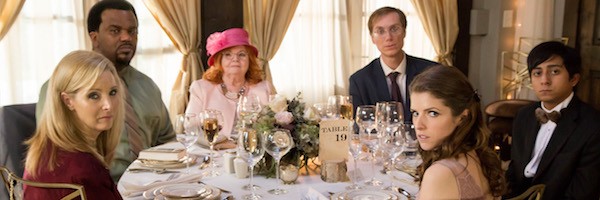Everything, Everything
Posted on May 18, 2017 at 5:57 pm
B-| Lowest Recommended Age: | Middle School |
| MPAA Rating: | Rated PG-13 for thematic elements and brief sensuality |
| Alcohol/ Drugs: | Medication |
| Violence/ Scariness: | Theme of potentially deadly illness, reference to sad death, domestic abuse |
| Diversity Issues: | None |
| Date Released to Theaters: | May 19, 2017 |

“Everything, Everything,” based on the novel by Nicola Yoon, is an updated fairy tale about a princess trapped in a castle and the prince who does not exactly rescue her but gives her a reason to rescue herself.
It’s not an enchantment or a curse that keeps her inside. It’s an illness that means any exposure to bacteria or a virus could be fatal. Maddy (Amandla Stenberg, Rue in “The Hunger Games”) cannot remember a time when she was allowed to be outdoors.
Diagnosed at 2 with the immune deficiency SCID, Maddy lives in an irradiated and sterile environment. She has never left her home and has never met anyone other than her doctor mother (Anika Noni Rose), her nurse Carla (Ana de la Reguera), and Carla’s daughter Rosa (Danube R. Hermosillo). She has books, she has an exercise machine, she has 100 identical white t-shirts, and she has an online SCID support group. She and her mother watch movies and play phonetic scrabble. Maddy studies architecture and builds model rooms, placing the figure of an astronaut in each one. This avatar is her opposite. Her world is measured in square feet; the astronaut’s is unlimited.
Maddy stands at the floor-to-ceiling window overlooking the backyard and imagines what it would feel like to stand on grass or feel a breeze of unfiltered air. And she has a seat in the corner of her bedroom overlooking the house next door, which is how she peers down at a new family moving in, a new family with a boy who has a beautiful smile. He is Olly (Nick Robinson of “Kings of Summer”). He draws his phone number on his window opposite her bedroom, and soon they are texting each other, sweetly portrayed as a face-to-face conversation at a table in Maddy’s model diner, with the astronaut looking on. She wears white; he wears black. She says, “When I talk to him, I feel like I’m outside.” But when she talks to him, she wants to go outside. And both of them find their worlds getting less black and white.
The elements of a young teen romantic fantasy are all here, primarily the disapproving parent, the utterly devoted and hunky but not too aggressive young male, adoring and supportive, and the big reason that they cannot get too physical, except maybe one perfect time. In “Twilight,” he was a vampire who could lose control and kill her. Here it’s just his normal human germs. Anyone over the age of 15 may be distracted by impracticalities and plot developments that go from improbable to preposterous, but even people who know that you have to have ID to get on an airplane and money to pay a credit card bill might just enjoy the pleasures of watching Maddy wake up to the world and Olly, through her, wake up to a few of his own.
Parents should know that this film includes risky teen behavior, some strong language, serious illness, and a non-explicit sexual situation.
Family discussion: Did Carla make the right decision? Why does Maddy put an astronaut in her model rooms?
If you like this, try: “My Sister’s Keeper,” “Before I Fall” and “The Fault in Our Stars”






